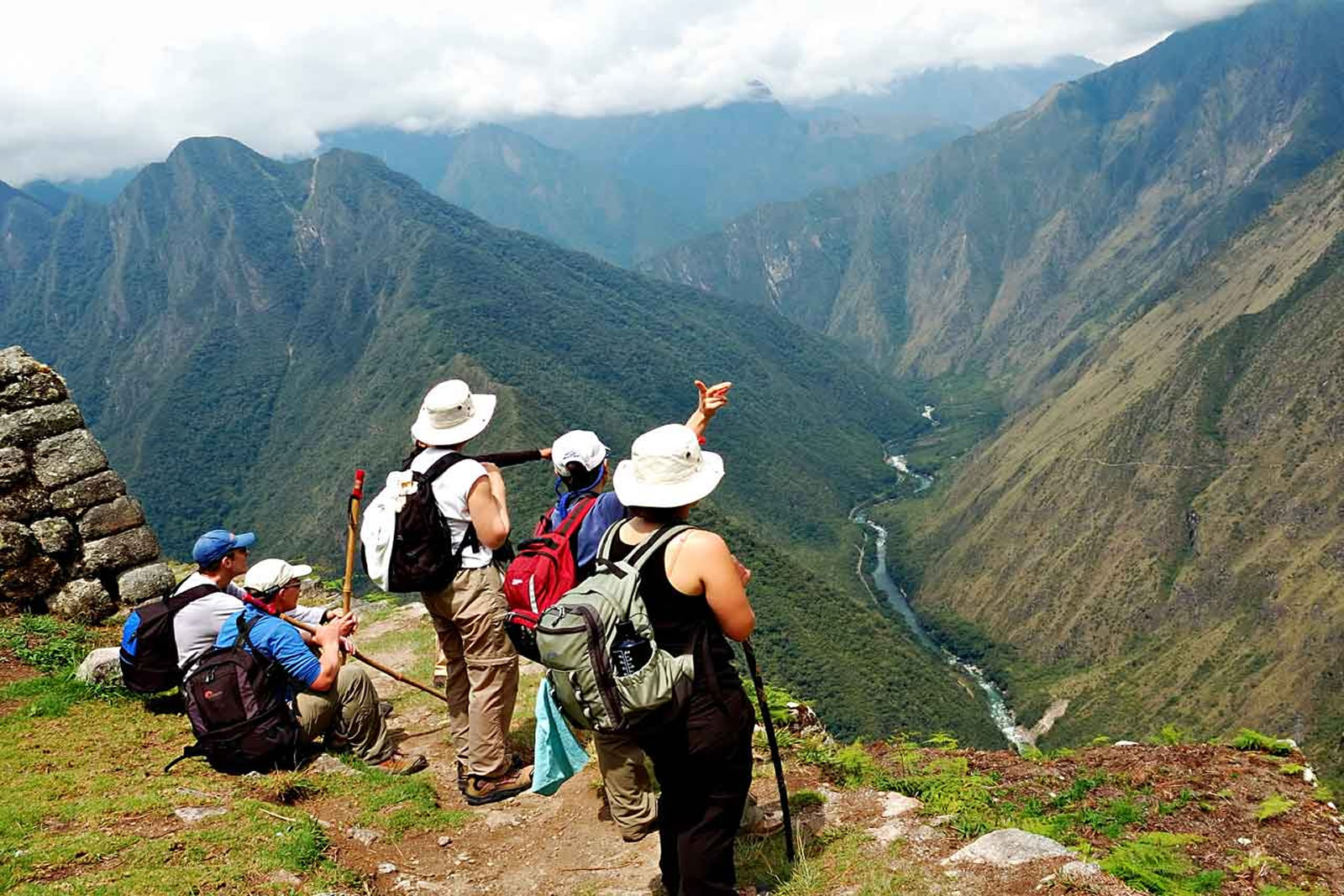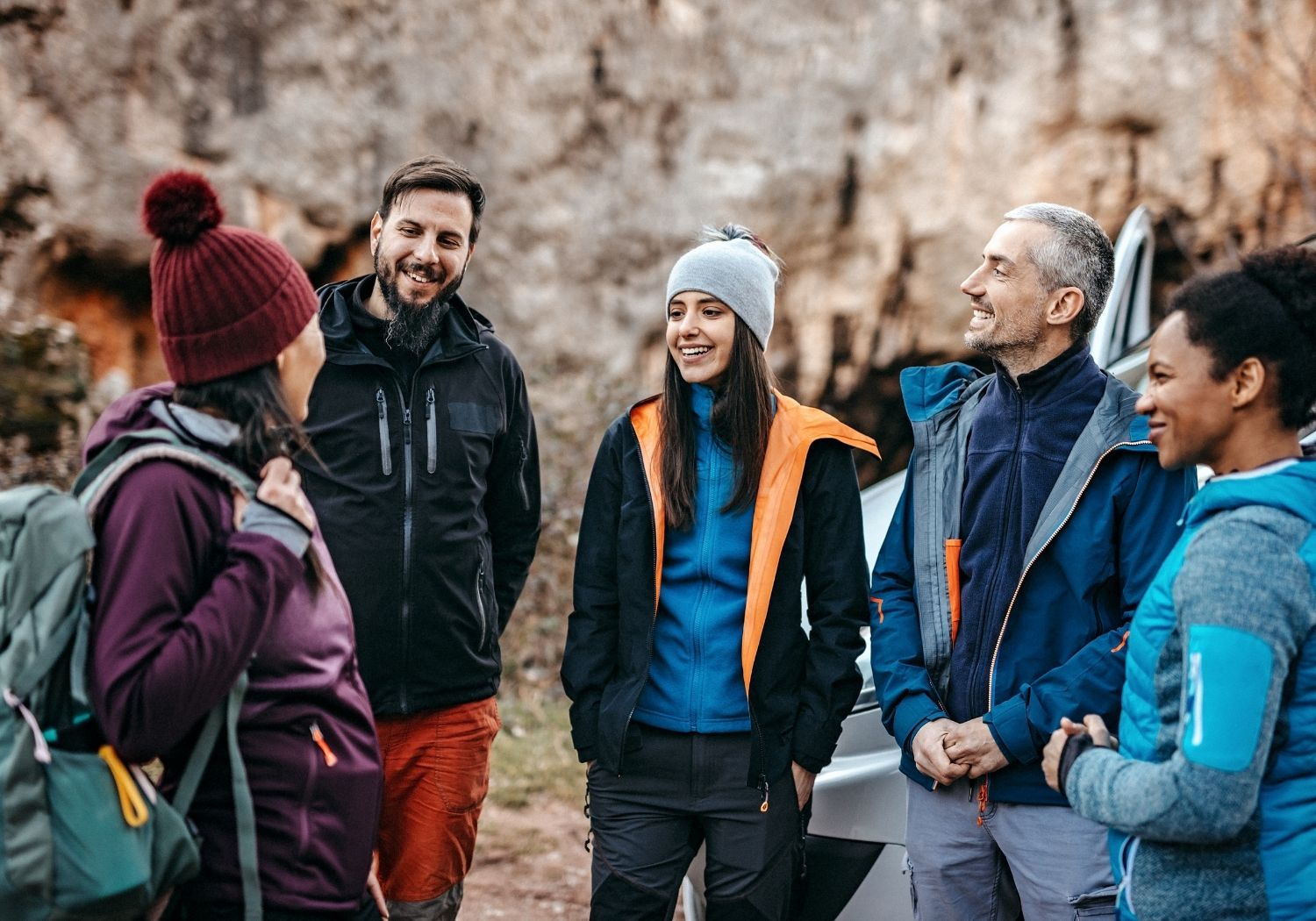Travel groups for young people – Embark on an unforgettable journey with travel groups designed exclusively for young people. These groups cater to the unique interests, preferences, and aspirations of young travelers, offering an array of experiences that foster adventure, cultural immersion, and lasting connections.
Whether you seek adrenaline-pumping escapades, budget-friendly explorations, or transformative cultural experiences, travel groups for young people provide an unparalleled opportunity to explore the world while building memories that will last a lifetime.
Target Audience
These travel groups specifically cater to young people between the ages of 18 and 35, with a focus on those in their early 20s. This age range is characterized by a desire for adventure, exploration, and cultural immersion, making them the ideal target audience for these groups.
Young people in this age group are typically open-minded, eager to experience new cultures, and have a strong interest in travel. They are also more likely to be flexible and adaptable, which is essential for group travel. Additionally, they are often seeking opportunities for personal growth and self-discovery, which travel can provide.
Interests and Travel Preferences
The interests and travel preferences of young people vary widely, but there are some common themes that emerge. These include:
- Adventure and outdoor activities: Many young people are drawn to activities that involve physical challenges, such as hiking, biking, and kayaking.
- Cultural immersion: Young people are often interested in learning about different cultures and ways of life. They may seek out opportunities to interact with locals and experience local customs.
- Social interaction: Young people often travel in groups to connect with other like-minded individuals. They may be interested in meeting new people and making friends from different backgrounds.
Motivations for Joining Travel Groups
There are many reasons why young people choose to join travel groups. Some of the most common motivations include:
- Convenience: Travel groups take care of the logistics of travel, such as booking flights, accommodations, and activities. This can be a major advantage for young people who are short on time or who do not have the experience to plan a trip independently.
- Safety: Traveling in a group can provide a sense of safety and security, especially for young people who are traveling alone for the first time.
- Socialization: Travel groups provide opportunities for young people to meet other like-minded individuals and make new friends.
- Education: Travel groups often incorporate educational elements into their itineraries, such as visits to historical sites or cultural landmarks.
Types of Travel Groups

For young people eager to explore the world, joining a travel group offers an unparalleled opportunity to connect with like-minded individuals, embark on unforgettable adventures, and create lasting memories.
Recognizing the diverse interests and aspirations of young travelers, various types of travel groups have emerged, each tailored to specific preferences and travel styles. Let’s delve into the different types of travel groups available:
Adventure-Focused Groups
Adventure-focused groups are designed for adrenaline seekers and those craving an exhilarating and physically challenging travel experience. These groups typically organize activities such as:
- Hiking through rugged landscapes
- White-water rafting down roaring rivers
- Rock climbing sheer cliffs
- Trekking through dense jungles
- Exploring remote and untouched destinations
Budget-Friendly Groups
Budget-friendly groups cater to young travelers on a tight budget who want to explore the world without breaking the bank. These groups prioritize affordability, offering:
- Accommodation in hostels or guesthouses
- Budget-conscious transportation options
- Group discounts on activities and tours
- Cost-effective dining options
- Flexible itineraries that allow for spontaneous adventures
Culturally Immersive Groups
Culturally immersive groups are ideal for those who seek a deep and authentic understanding of different cultures. These groups focus on:
- Visiting historical sites and monuments
- Engaging with local communities
- Learning about traditional customs and practices
- Sampling local cuisine and street food
- Participating in cultural festivals and events
Destinations and Activities

Travel groups for young people offer a wide range of destinations and activities that cater to the interests and preferences of young travelers. These destinations often include popular cities, cultural hubs, and adventure hotspots, while the activities range from sightseeing and cultural immersion to thrilling adventures and outdoor experiences.
These destinations and activities are carefully curated to provide young travelers with memorable and enriching experiences that align with their desire for exploration, discovery, and adventure. The focus is on creating itineraries that offer a balance of cultural immersion, social interaction, and thrilling activities, ensuring that young travelers have a well-rounded and unforgettable travel experience.
Popular Destinations
- Major cities:London, Paris, Rome, New York City, Tokyo
- Cultural hubs:Florence, Athens, Istanbul, Marrakesh, Bangkok
- Adventure hotspots:Queenstown (New Zealand), Interlaken (Switzerland), Banff (Canada), Moab (Utah)
Types of Activities
- Sightseeing and cultural immersion:Guided tours, museum visits, historical landmarks
- Thrilling adventures:Bungee jumping, skydiving, white-water rafting
- Outdoor experiences:Hiking, camping, snorkeling, wildlife safaris
- Social interaction:Pub crawls, group dinners, organized meet-ups
Group Dynamics and Benefits: Travel Groups For Young People
Group travel offers a unique blend of social and practical benefits that can enhance the overall travel experience for young people. By joining a group, individuals have the opportunity to connect with like-minded individuals, forge new friendships, and build a sense of community while exploring new destinations.
Group travel also provides numerous advantages that can make the journey more enjoyable and cost-effective. Shared experiences, such as exploring landmarks, engaging in activities, and sharing meals, create lasting memories and foster a sense of camaraderie among group members. Additionally, group travel often comes with safety benefits, as there is always someone to keep an eye out for others, and costs can be reduced through shared accommodation, transportation, and activity expenses.
Social Benefits
- Meet new friends and build connections with like-minded individuals.
- Experience the joy of shared travel memories and create lasting friendships.
- Gain a sense of community and belonging while exploring new destinations.
Practical Benefits
- Share expenses, including accommodation, transportation, and activities, to save money.
- Benefit from safety in numbers, with someone always looking out for the group.
- Enjoy the convenience of pre-planned itineraries and organized logistics.
Organization and Logistics

The organizational structure of youth travel groups is designed to ensure a safe and enjoyable experience for all participants. Tour leaders play a vital role in managing the group, providing guidance, and ensuring the itinerary runs smoothly.
Tour leaders are typically experienced travelers who are passionate about sharing their knowledge and enthusiasm with others. They are responsible for planning the itinerary, booking transportation and accommodation, and leading the group throughout the trip. They also provide cultural insights, historical context, and recommendations for activities and attractions.
Support Staff
In addition to tour leaders, some travel groups may also employ support staff to assist with logistics and ensure the smooth operation of the trip. Support staff can include drivers, cooks, guides, and medical personnel. They work closely with the tour leader to provide a safe and comfortable environment for participants.
Itinerary Planning
The itinerary for a youth travel group is carefully planned to maximize the experience and cater to the interests of the participants. It typically includes a mix of activities, such as sightseeing, cultural immersion, adventure sports, and social events. The tour leader works with the group to tailor the itinerary to their preferences and ensure that everyone has a memorable and fulfilling experience.
Transportation
Transportation arrangements for youth travel groups vary depending on the destination and the size of the group. Common modes of transportation include buses, trains, and planes. The tour leader is responsible for booking transportation and ensuring that the group arrives at each destination safely and on time.
Accommodation Arrangements
Accommodation arrangements for youth travel groups typically include hostels, guesthouses, and budget hotels. The tour leader is responsible for booking accommodations and ensuring that the group has a comfortable and secure place to stay during the trip.
Safety and Risk Management

Prioritizing the safety and well-being of young travelers is paramount in group travel. Travel groups implement comprehensive risk management protocols to mitigate potential hazards and ensure a secure and enjoyable experience for all participants.
These measures encompass:
Pre-Departure Risk Assessment, Travel groups for young people
- Thorough destination research and risk analysis to identify potential safety concerns.
- Assessment of participants’ health, fitness, and travel experience to determine suitability.
- Clear communication of safety protocols, emergency procedures, and local laws to participants.
On-Trip Safety Measures
- Professional guides with local knowledge and emergency response training.
- Established itineraries and activities designed to minimize risks.
- Regular check-ins and communication with participants to monitor well-being.
Emergency Preparedness
- Comprehensive emergency response plans in place for various scenarios.
- First-aid kits, communication devices, and evacuation procedures readily available.
- Training and drills to ensure participants are familiar with safety protocols.
Marketing and Outreach
Travel groups for young people utilize a multifaceted marketing strategy to reach and engage their target audience.
Social media platforms play a pivotal role in promoting these groups, allowing them to connect with potential travelers through targeted advertising, engaging content, and influencer partnerships.
Online Platforms
Online platforms, such as travel booking websites and social media groups, provide a valuable channel for travel groups to showcase their offerings and connect with interested individuals.
- These platforms offer a wide reach and enable groups to target specific demographics and interests.
- Travel groups can create dedicated websites and social media pages to provide detailed information about their trips, itineraries, and booking processes.
Influencer Partnerships
Influencer partnerships are a powerful tool for travel groups to reach a wider audience and build credibility.
- Collaborating with travel influencers allows groups to tap into the influencer’s established following and leverage their authenticity to promote their trips.
- Influencers can share their experiences with the group, provide exclusive content, and generate excitement for upcoming departures.
Case Studies and Success Stories

Various travel groups for young people have achieved notable success in fostering meaningful experiences and personal growth among participants. Here are some case studies and testimonials that showcase the impact and benefits of these groups.
Case Study: “Roam & Grow”
- Organization:Roam & Grow is a travel group designed for young adults between the ages of 18 and 25.
- Destinations:The group offers trips to diverse destinations worldwide, including Peru, Morocco, and Thailand.
- Activities:Roam & Grow focuses on immersive cultural experiences, including homestays, local market visits, and volunteer projects.
- Impact:Participants have reported increased cultural awareness, enhanced communication skills, and a greater sense of independence.
Testimonials
Participant A:“My trip with Roam & Grow was life-changing. I learned so much about different cultures and made lifelong friends.”
Participant B:“The volunteer project we did in Thailand was an eye-opening experience that taught me the importance of giving back.”
Ultimate Conclusion

In the vibrant world of travel groups for young people, adventure, culture, and connections intertwine to create an unforgettable tapestry of experiences. These groups empower young travelers to embrace new challenges, immerse themselves in diverse cultures, and forge friendships that transcend borders.
As you embark on your next adventure with a travel group tailored to your interests, know that you are not merely joining a group but embarking on a transformative journey that will shape your perspectives, broaden your horizons, and leave an enduring mark on your soul.
Expert Answers
What is the age range for travel groups for young people?
The age range typically varies depending on the specific travel group, but most groups cater to young people between the ages of 18 and 35.
What types of activities are offered by travel groups for young people?
Travel groups for young people offer a wide range of activities, including adventure sports, cultural tours, volunteer opportunities, and social events. The specific activities vary depending on the destination and the focus of the group.
How do I choose the right travel group for me?
Consider your interests, travel preferences, and budget when choosing a travel group. Research different groups and read reviews from previous participants to find one that aligns with your expectations.
